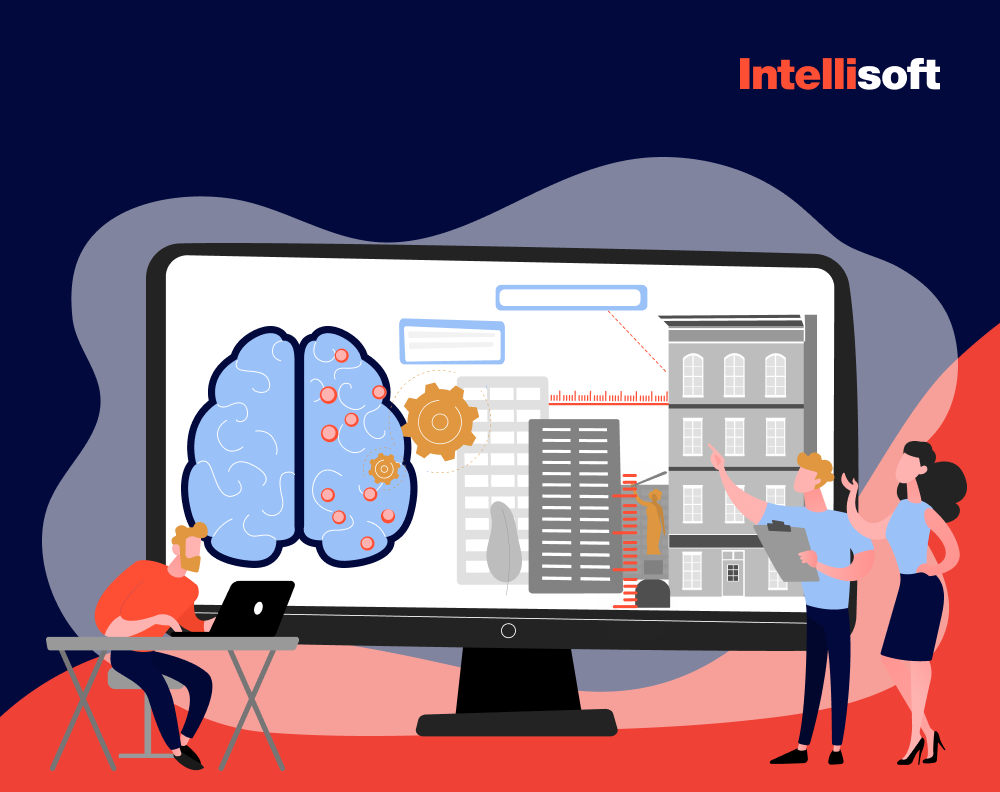Data Warehouse as a Service (DWaaS) offers businesses an efficient way to manage large volumes of information. Instead of making substantial investments in data warehouse hardware and software and then grappling with setup and maintenance, companies can now rely on cloud service providers. These providers handle all technical aspects—from resource configuration to system infrastructure management—enabling businesses to concentrate on their core operations and simply provide their insights.
This method is gaining traction for good reason. It removes the significant upfront costs and the complexity of managing intricate systems. Providers in the Data Warehouse as a Service market manage daily operations, freeing businesses from these tasks.
The move towards cloud-based solutions is accelerating. A recent survey by IT management tools vendor Flexera, which involved 753 cloud users, revealed that 65% of organizations now use cloud data warehouse services, up from 56% the previous year. This increase reflects a broader trend. According to Emergen Research, the Data Warehouse as a Service market size, valued at $5.8 billion in 2022, is projected to grow at an impressive annual rate of 22.3% from 2023 to 2032.
As more companies transition their applications to the cloud, DWaaS fits well with the need to manage information where it’s generated. It’s not just about convenience; it’s about integrating data management into the cloud ecosystem to enable smarter, faster business operations.
Table of Contents
What is Data Warehouse as a Service (DWaaS)?
Data Warehouse as a Service (DWaaS) is revolutionizing how organizations manage their information by offering a managed cloud service that eliminates the need for infrastructure management. Dealing with large volumes of information quickly is crucial now, DWaaS stands out as a transformative solution.
Historically, companies depended on on-premises data warehouses, which are essential for enterprise business intelligence (BI). However, these systems entail significant hardware and software costs and require constant upkeep. DWaaS changes the game by allowing cloud service providers to manage setup, configuration, and ongoing maintenance. This approach lets businesses concentrate on extracting valuable insights from their information without worrying about storage logistics.
One of DWaaS’s key advantages is its ability to scale effortlessly with real-time demand, making it a cost-effective alternative to traditional solutions. Companies can adjust resources as needed, avoiding unnecessary expenses. The simplicity of DWaaS is a major draw: businesses provide the information and pay for the service, while the provider handles everything else, reducing upfront costs and administrative headaches.
Platforms such as BigQuery are at the forefront of enterprise data warehousing, driving innovation with built-in machine learning and BI tools that operate across various cloud environments. These platforms easily scale to meet growing information demands, making the power of big data more accessible and impactful than ever.
What Are Key Usages of a Warehouse as a Service?
Data Warehouse Platform as a Service is reshaping the data management landscape with its robust cloud-based solutions. Here’s how DWaaS can revolutionize your approach to handling information:
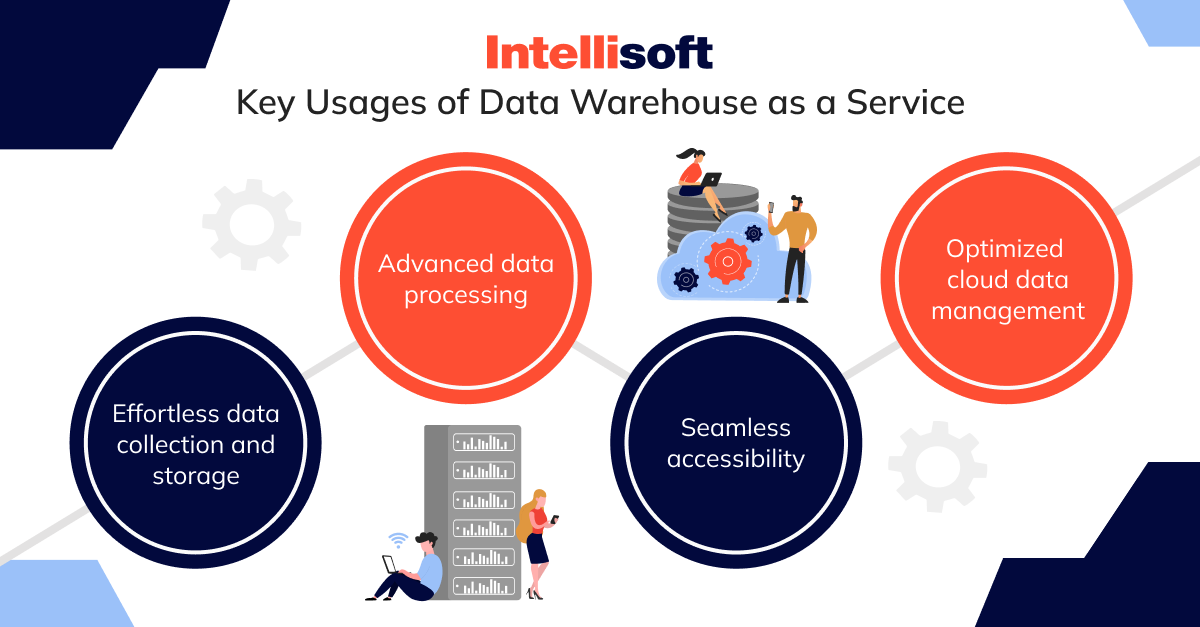
- Effortless data collection and storage. Think of DWaaS as a central hub where all your information streams converge seamlessly. It offers a unified platform that gathers and securely stores vast amounts of insights from multiple sources without bulky physical infrastructure. This flexibility means your business can scale its information storage effortlessly as needs grow.
- Advanced data processing. DWaaS goes beyond just storing information; it transforms raw data into valuable insights. Processing and refining them supports analytics and drives smarter business decisions, making information a powerful tool.
- Seamless accessibility. With DWaaS, accessing critical information from anywhere at any time becomes a reality. This service enhances remote work capabilities, allowing your team to make informed decisions on the fly—perfect for the fast-paced demands of today’s business world.
- Optimized cloud data management. Managing information in the cloud with DWaaS is both streamlined and effective. Designed to meet the specific needs of cloud management, DWaaS improves overall governance and security, ensuring your information is always in good hands.
What Type of Software Requires DWaaS?
DWaaS is especially advantageous for software demanding robust management capabilities. This is particularly true in sectors where analytics, reporting, and business intelligence are pivotal. The software types that typically benefit from DWaaS include:
- Business Intelligence (BI) software. Such software often requires performing complex data analyses and generating reports. DWaaS offers enhanced processing power and scalable storage, making it an ideal solution.
- Customer Relationship Management (CRM) systems. These systems handle large volumes of customer information and interactions. DWaaS provides the infrastructure necessary for efficient insight storage and processing.
- Enterprise Resource Planning (ERP) systems. ERP systems integrate functions like finance, HR, and supply chain management. They often need to consolidate information from diverse sources, which is well-supported by DWaaS.
- Marketing platforms. These platforms track user engagement, campaign performance, and other metrics. DWaaS can manage large datasets and deliver actionable insights.
- E-commerce systems. DWaaS helps analyze customer behavior, manage inventory, and optimize sales strategies based on data-driven insights, making it highly beneficial for e-commerce systems.
How Does Data Warehouse as a Service Work?
DWaaS harnesses cloud computing’s capabilities to revolutionize data management, simplifying data warehouse setup, upkeep, and scaling. By entrusting these technical responsibilities to DWaaS providers, companies can focus on extracting valuable insights from their information without the burden of backend management.
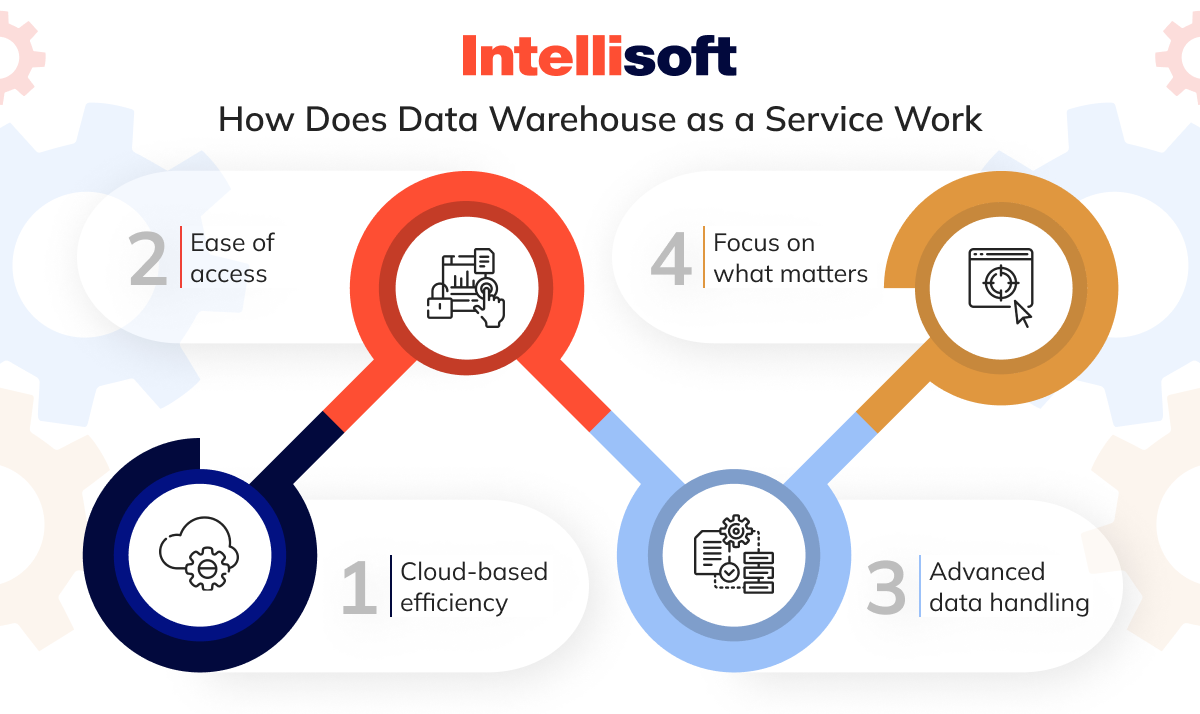
- Cloud-based efficiency. With DWaaS, the entire infrastructure—hardware and software—of your data warehouse is overseen by the service provider. They handle configuration and optimization, ensuring efficient and scalable processing. This approach allows businesses to devote less time to technical setups and more to strategic analysis.
- Ease of access. DWaaS is fully accessible via the Internet. Companies can use the service’s tools to interact seamlessly with their information. This model eliminates the need for physical hardware on-site and complex software setups, facilitating data management.
- Advanced data handling. DWaaS goes beyond storage, enhancing how insights are managed. It consolidates information from various sources, sets up proactive alerts, and ensures rapid recovery in case of disasters. These features guarantee that your insights remains robust and reliable.
- Focus on what matters. Outsourcing the management and upgrades of your data warehouse to a DWaaS provider allows your company to concentrate on in-depth analysis and strategic decision-making, rather than getting bogged down with operational details.
Key Components of a Cloud DWaaS
Data Warehouse
Data Warehouse as a Service is designed to meet your organization’s business needs, existing information sources, management strategies, and quality standards. This cloud-based service includes analytical databases, centralized storage, and essential tools for queries, management, and access controls. One major advantage? No more worrying about provisioning storage or reserving capacity—DWaaS automatically allocates resources as soon as you load data, making information handling more efficient and simplifying your IT infrastructure.
Data Integration Tools
Since warehouses compile information from various business systems, DWaaS must include tools that facilitate ETL (Extract, Transform, Load) and ELT (Extract, Load, Transform) processes. These tools are vital for the efficient integration and management of information.
Reporting and Data Analytics
DWaaS solutions bring an array of features to enhance your data analysis capabilities. Think of having robust query processing at your disposal, complemented by a suite of integrated tools for business intelligence, advanced analytics, machine learning, AI, and reporting. These tools are indispensable for converting raw information into meaningful business insights. Whether it’s through mining, statistical reporting, or spatial analysis, DWaaS empowers organizations to harness the potential of their enterprise information fully.
Related articles:
- Big Data Security Intelligence: What You Need to Know
- What is Data Mining: Examples And Detailed Overview
- Data Management Strategy: How to Organize and Utilize Your Data
- Structured and Unstructured Data: A Detailed Comparison
- What is Data Visualization? Your Guide to Clarity
Benefits of Using a DWaaS System
Organizations can reap numerous benefits by adopting Data Warehouse as a Service (DWaaS). Here are some of the top advantages:
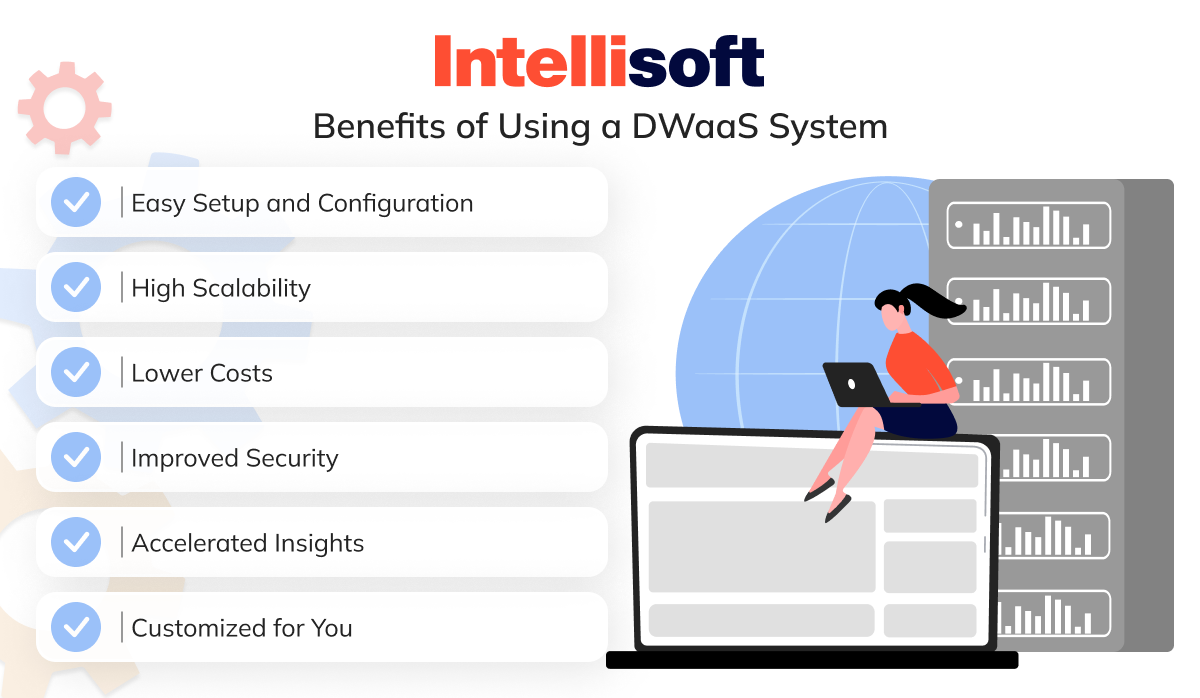
Easy Setup and Configuration
DWaaS solutions make setup a breeze, enabling you to get started swiftly. You can avoid the complexities of deploying infrastructure for information storage and eliminate the need for a specialized team to handle configuration, management, or maintenance.
High Scalability
With DWaaS, you can easily adjust your resources based on your needs. This flexibility allows you to ramp up your data processing and storage capabilities when necessary or dial them back when less is required, ensuring efficiency and cost savings.
Lower Costs
Database as a Service models take over the often complex and tedious tasks of administration and management, placing these responsibilities on the service provider. This model not only reduces the significant upfront costs tied to hardware and software but also drastically cuts down the effort and resources needed to maintain a data warehouse infrastructure. Consequently, businesses can concentrate more on effectively leveraging their information rather than being burdened by its maintenance.
Improved Security
Data Warehouse as a Service providers ensure your systems stay up-to-date, removing the risks associated with outdated software and hardware. They help fortify your data’s security by offering enhancements like encryption, multi-factor authentication, and other robust security measures. This proactive approach keeps your information safe and your mind at ease.
Accelerated Insights
DWaaS is crafted to excel in cloud environments, dramatically accelerating query processing times and perpetually advancing to boost overall efficiency. This approach translates to accessing and utilizing crucial insights more swiftly than ever before.
Customized for You
Managed cloud data warehouse services offer a versatile and adaptive environment that caters to your changing business requirements and future goals. These services enable seamless adjustment and scaling of your information solutions to match evolving data sources and business needs.
DWaaS vs. Data Lakes vs. Data Marts
Explore data management and analytics with three key tools: Data Warehouse as a Service (DWaaS), data lakes, and data marts—each tailored to meet specific information needs.
Data Warehouse as a Service (DWaaS)
Picture having a powerful warehousing capability without the burden of physical infrastructure. That’s DWaaS in a nutshell. As a cloud-based service, it handles everything from setup to maintenance, offering scalability and cost efficiency. This approach lets you focus on leveraging your information rather than dealing with logistical headaches.
Data Lakes
Imagine a data lake as a vast reservoir, storing immense volumes of raw information in its original form until you need it. Data lakes are unique in their ability to hold all insight types—structured, semi-structured, and unstructured. They’re designed for low-cost storage and high scalability, making them ideal for big data analytics, machine learning, and real-time analytics. If your operations involve managing large, varied datasets, a data lake is likely your best option.
Data Marts
For more specific information needs, consider a data mart. It’s a specialized warehouse section dedicated to a particular function or department within your organization. With its narrower focus, a data mart provides tailored solutions that improve response times and ease access to relevant information. This setup is perfect for supporting decisive action within specific business areas, making it simpler for teams to extract insights relevant to their goals.
DWaaS vs. On-premises Data Warehouses
Companies can establish their own on-premises warehouse infrastructure, sidestepping some challenges associated with Data Warehouse as a Service (DWaaS), such as vendor lock-in. However, this approach has its challenges. Creating an on-premises warehouse is a significant undertaking—it requires a substantial investment of time and money, as well as a team of dedicated experts.
On the flip side, DWaaS presents a more agile solution. It’s faster to implement and offers seamless scalability, enabling businesses to adjust as their information needs grow swiftly. In stark contrast, expanding an on-premises data warehouse can be a monumental task, often lagging behind the rising information demands.
Moreover, DWaaS excels in real-time information ingestion and analytics. By centralizing pipelines, storage, and computing power, it simplifies the collection and analysis of insights. This configuration reduces the bottlenecks that typically hinder real-time information processing in physical setups, making DWaaS an attractive option for businesses looking to harness instant data insights.
DWaaS Vendors and Technologies
Here are some of the leading providers making waves in the Data Warehouse as a Service market today:
Amazon Redshift
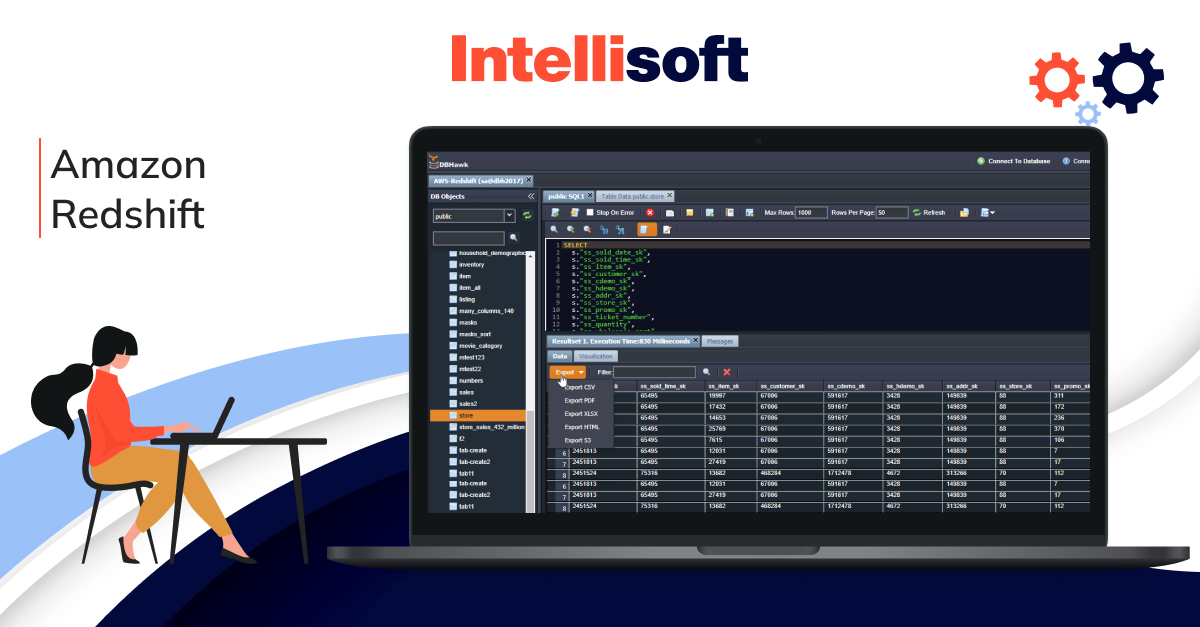
Redshift, a vital part of Amazon Web Services, serves as a dynamic and popular DWaaS solution. It’s engineered to offer fast, scalable, and budget-friendly data warehousing solutions. Redshift excels with its ability to support massive information storage and manage intricate queries effortlessly, making it a top choice for businesses aiming to harness insights.
Microsoft Azure SQL Data Warehouse (Azure Synapse Analytics)

Azure Data Warehouse as a Service platform revolutionizes how you handle information by merging big data and warehousing into a single, powerful analytics platform. Azure Synapse Analytics enables you to manage and analyze vast amounts of information effortlessly, turning complex information into actionable insights.
Google BigQuery
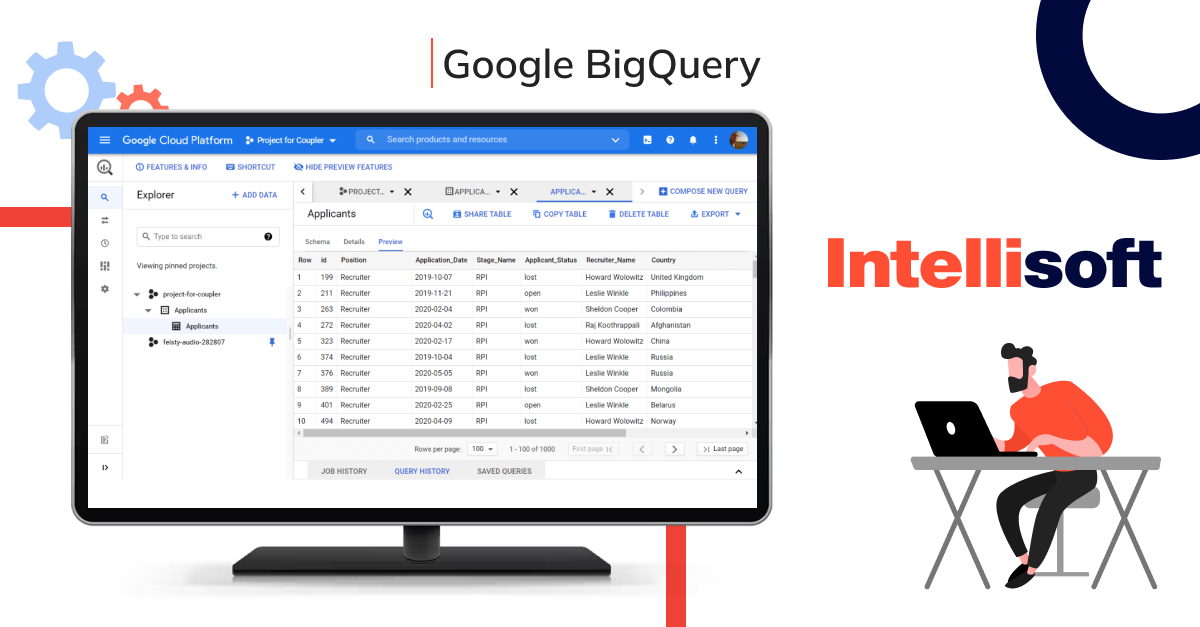
BigQuery is a fully-managed enterprise warehouse celebrated for its lightning-fast SQL queries that benefit from Google’s powerful infrastructure. Designed with scalability and ease of use, it stands out as an excellent choice for businesses eager to handle big amounts of information without hassle.
Snowflake Computing Inc
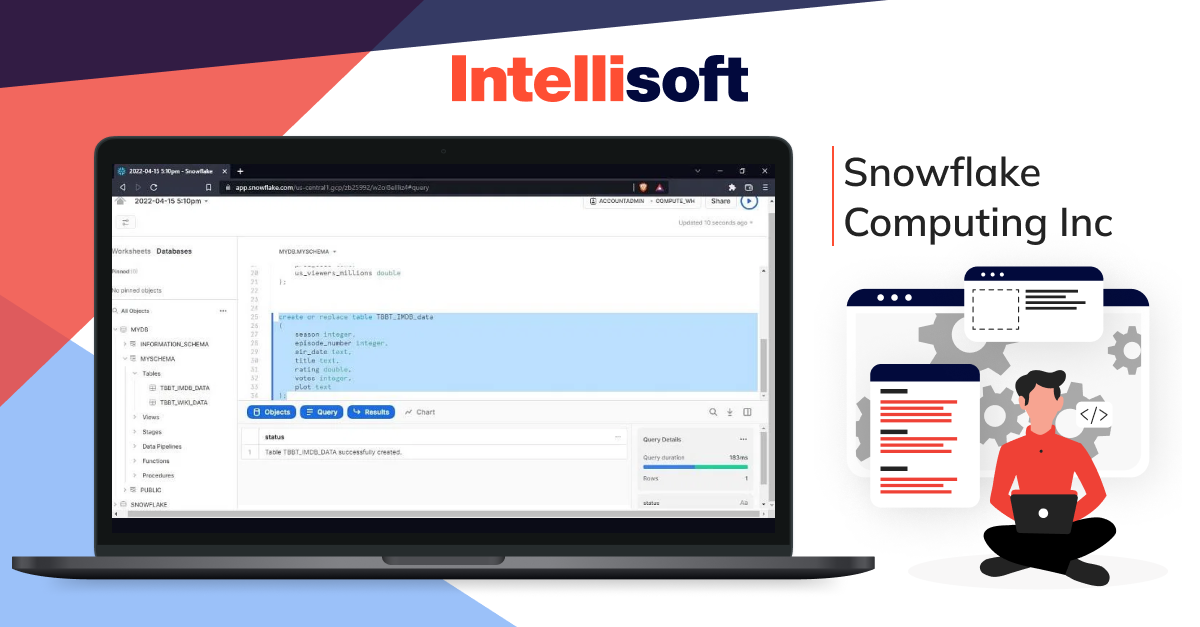
This cloud-based data warehousing service boasts a revolutionary architecture that cleverly decouples computing from storage. Snowflake Data Warehouse as a Service platform lets you scale up or down effortlessly, all without any downtime.
SAP SE
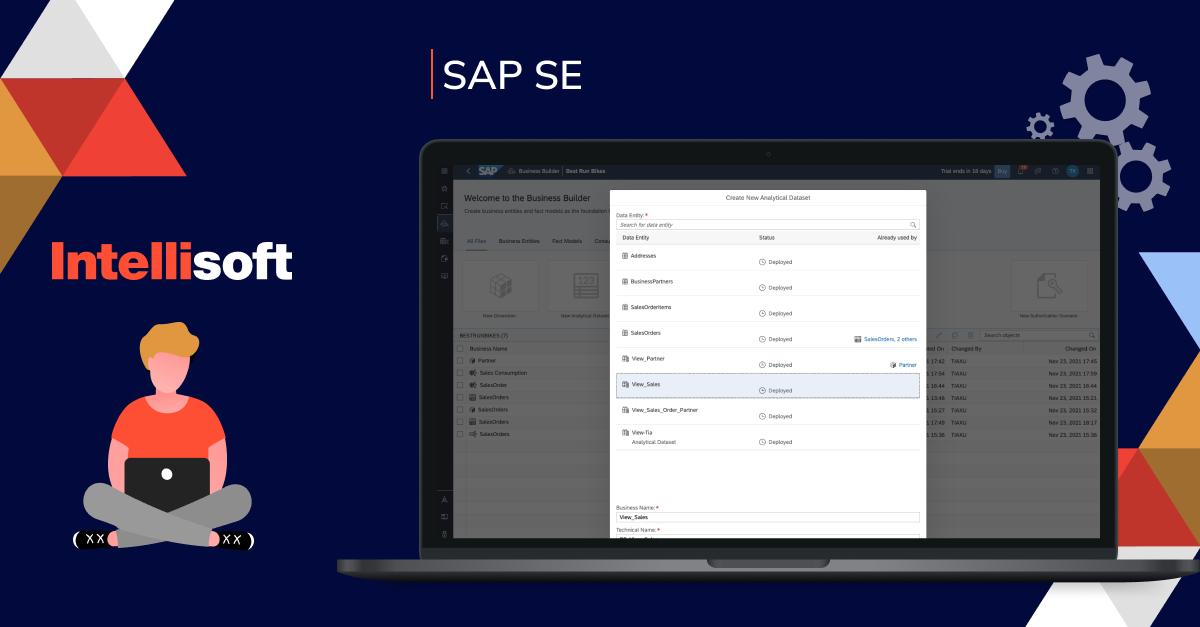
SAP SE delivers powerful data warehousing solutions that seamlessly integrate with other SAP products, offering complete services for all your needs.
DWaaS Challenges and Considerations
Harnessing the capabilities of cloud-based Data Warehouse as a Service (DWaaS) prioritizes performance and accessibility. Since DWaaS operates online, a reliable, high-speed internet connection is crucial. Any interruptions can slow down or completely halt your access to vital insights, making it imperative for your DWaaS provider to ensure high performance and uptime. This dependency means that any service disruptions can directly impact your operations.
Latency is another common challenge in DWaaS environments. It isn’t just about the speed of data access for analysis; it begins with how quickly information moves from your daily operations into the cloud warehouse. The amount of transferred insights significantly affects this—larger volumes require more migration time. Complex analytical queries, especially those involving substantial datasets, are particularly prone to slowdowns.
Switching between DWaaS providers can be difficult due to vendor lock-in issues. Each DWaaS solution is different, so choosing one with familiar underlying technologies can prevent future complications and ease the transition if switching providers becomes necessary.
Security concerns, regulatory compliance, and effective risk management are crucial in a DWaaS setup. Costs can also escalate if usage exceeds initial estimates or if redundant resources go unnoticed.
How IntelliSoft Can Help
Data Warehouse as a Service (DWaaS) transforms how organizations handle and analyze their data. From traditional warehouses to cloud-based solutions, DWaaS offers the flexibility, scalability, and cost-efficiency that today’s businesses need. As more companies adopt this agile and efficient approach to data warehousing, DWaaS is set to become a cornerstone of enterprise information strategies, ensuring more informed and timely business decisions across various industries.
IntelliSoft offers assistance in building custom data warehouses and integrating ready-made solutions with your existing systems and tools, ensuring swift and accurate information migration with thorough cleaning and testing. Flexible on-demand configurations and timely optimizations ensure your data warehouse evolves with your business needs. Contact us today to get a consultation from our team.



